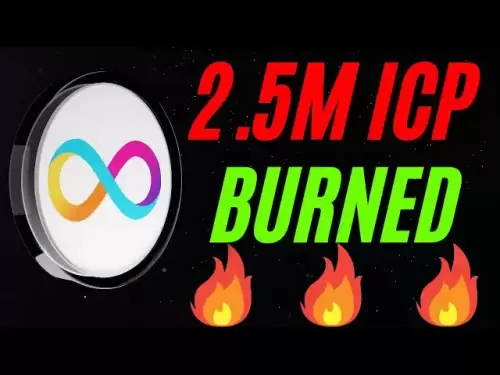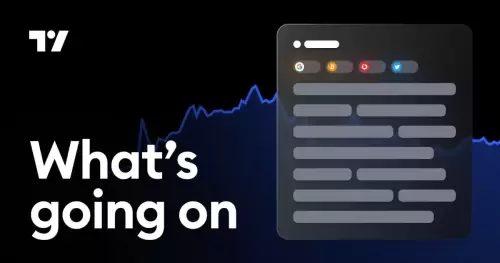 |
|
 |
|
 |
|
 |
|
 |
|
 |
|
 |
|
 |
|
 |
|
 |
|
 |
|
 |
|
 |
|
 |
|
 |
|
加密货币新闻
Imagine your investments working around the clock, scanning global markets for the best opportunities
2025/04/30 23:32

In the realm of finance, change is often a slow dance. But in the sphere of cryptocurrency and decentralized finance (DeFi), the music plays fast, and the steps are bold.
This year, we'll see a 20% surge in cross-chain transactions, while the number of AI agents catering to various financial services will swell from 10,000 to over a million by the end of 2025, according to VanEck.
Meanwhile, TradFi algorithms already handle nearly 70% of U.S. stock trades.
This isn't science fiction; it's the new frontier of finance.
But can we really trust AI with billions of dollars?
Autonomous finance isn't new, but today's AI agents operate with increased autonomy and sophistication. They're capable of analyzing market trends, balancing portfolios and managing liquidity across platforms like SaucerSwap and Uniswap.
However, concerns arise when algorithms, not humans, make critical decisions. Who would be held responsible for market manipulation performed by an agent?
These worries are valid. As AI agents take on more responsibility, and especially as the convergence between crypto and TradFi accelerates, worries around transparency and market manipulation will grow.
For instance, some blockchains enable front running trades and sandwich attacks that can exploit blockchain consensus in a process known as Maximal Extractable Value (MEV). These transaction strategies harm fairness and market trust.
Operating at machine speed, AI agents could supercharge these risks.
But there's a crucial layer that can bind trust and prevent chaos.
Enter DLT: the trust layer we need
Trust is paramount, and distributed ledger technology (DLT) offers the solution. DLT provides real-time transparency, immutability and decentralized consensus, ensuring decisions are trackable and auditable.
The Identity Management Institute reported companies that integrated blockchain identity systems have already cut fraud by 40% and identity theft by 50%. Applying these guardrails to AI-driven finance can counter manipulation and promote fairness.
Moreover, the use of DLTs with fair ordering is growing rapidly, ensuring transactions are sequenced fairly and unpredictably, addressing MEV concerns and promoting trust in decentralized systems.
DeFAI: where finance is headed
A blockchain-powered, trust-centric model could unlock a new paradigm, “DeFAI”, in which autonomous agents can operate freely without sacrificing oversight.
Open-source protocols like ElizaOS, which have blockchain plugins, are already enabling secure and compliant AI interactions between agents across DeFi ecosystems.
Bottom line: trust will define the future of AI
As AI agents take on more complex roles, verifiable trust becomes non-negotiable. Verifiable compute solutions are already being built by firms like EQTY Lab, Intel and Nvidia to anchor trust on-chain.
DLT ensures transparency, accountability and traceability. This is already in motion; on-chain agents are now operating that offer services ranging from trade execution to predictive analytics. We can trust AI when we have trust in the model input and output.
The question now isn't if institutions will adopt autonomous finance, but whether frameworks can evolve fast enough. For this revolution to thrive, trust must be embedded into the foundation of the system.
免责声明:info@kdj.com
所提供的信息并非交易建议。根据本文提供的信息进行的任何投资,kdj.com不承担任何责任。加密货币具有高波动性,强烈建议您深入研究后,谨慎投资!
如您认为本网站上使用的内容侵犯了您的版权,请立即联系我们(info@kdj.com),我们将及时删除。
-

-

- Ruvi AI(RVU)利用区块链和人工智能破坏营销,娱乐和金融
- 2025-06-13 07:05:12
- 长期以来,Tron一直是区块链项目如何通过关注其使命并实现一致增长来取得显着成功的一个辉煌的例子。
-

-

-

- 随着RWA集成计划,信任钱包令牌(TWT)的价格下跌了5.7%
- 2025-06-13 06:45:13
- Trust Crypto Wallet的最新宣布将令牌化现实资产(RWAS)带到其超过2亿用户引起了兴奋。
-

- 以太坊(ETH)处于三阶段市场周期的第二阶段
- 2025-06-13 07:25:13
- 根据分析师Abbé提供的图表和推文信息,以太坊(ETH)处于三阶段市场周期的第二阶段。
-

-

-




















![“ ColorBlind”作者:Robzombie_level完成100%(1个硬币)[硬级]。 “ ColorBlind”作者:Robzombie_level完成100%(1个硬币)[硬级]。](/uploads/2025/06/17/cryptocurrencies-news/videos/colorblindrobzombielevel-complete-coin-hard-level/6850630484c02_image_500_375.webp)







































